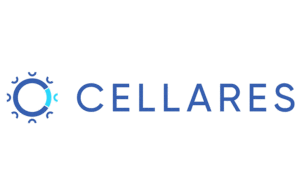 Less than a week after announcing that it has secured $255 million in Series C funding, South San Francisco-based startup Cellares has revealed that Bristol Myers Squibb has joined its Technology Adoption Partnership (TAP) program. To date, the company has raised more than $355 million in total financing.
Less than a week after announcing that it has secured $255 million in Series C funding, South San Francisco-based startup Cellares has revealed that Bristol Myers Squibb has joined its Technology Adoption Partnership (TAP) program. To date, the company has raised more than $355 million in total financing.
As part of the TAP program, Bristol Myers Squibb plans on conducting a proof-of-concept transfer of a CAR-T cell therapy process onto the Cell Shuttle, which the company has called a “factory in a box.”
Cellares plans to use the funding to launch what it dubs the world’s first commercial-scale Integrated Development and Manufacturing Organization (IDMO) smart factory. Koch Disruptive Technologies led the investment round, which included participation from Bristol Myers Squibb, DFJ Growth, Willett Advisors, Eclipse, Decheng Capital and 8VC.
When asked how Cellares managed to receive a large funding round in a difficult financial climate, Gerlinghausen said, “ultimately, it really boils down to the fact that we’re addressing an incredibly meaningful, valuable, and important problem for patients and our customers.”
Analysts such as Grand View Research project that the global cell therapy market will grow at a compound annual growth rate (CAGR) of 16.5% from 2023 to 2030.
Gerlinghausen, reflecting on the potential of cell and gene therapy and his company’s mission to enhance efficient CGT manufacturing, envisions the company making cures for cancer “mass manufacturable” within a decade. “It’s a valuable problem to solve and certainly something that’s captivated investors,” he said.
David Mauney, managing director of Koch Disruptive Technologies, touted the “tremendous curative potential” of cell therapies across an array of disease areas. He noted, however, the delta between this potential and the current manufacturing realities. At present, manufacturing from conventional CDMOs is “expensive, failure-prone, and impossible to scale,” Mauney said in a press release. “Cellares is driving transformation in the marketplace by combining an Industry 4.0 approach with full vertical integration.”
Industry 4.0 originated in Germany as a strategic initiative from the German government to advance manufacturing through technology, specifically through integrating automation and data exchange. The concept encompasses cyber-physical systems, cloud computing and artificial intelligence in an aim to bring about the “Fourth Industrial Revolution.”
Investor confidence in applying Industry 4.0 principles to cell and gene therapy has markedly changed since the company’s inception in 2019. “When we started out, we got pushback from customers and investors who believed that our ambitious plans were, as they put it, ‘positively mad,’” he said. “Yet, we built all the necessary instruments within the first two years, then fully integrated these technologies into the first functional Cell Shuttle by the third.” By the fourth year, the company was able to run fully automated CAR-T cell manufacturing processes on the Cell Shuttle, which supports both autologous and allogeneic cell therapy processes.

Cellares co-founders, Omar Kurdi (left) and Fabian Gerlinghaus (right) in front of the Cell Shuttle.
On the technical front, building a smart factory — essentially a real-world embodiment of Industry 4.0 principles — is no easy feat. As Gerlinghaus observed, such a factory in a cell therapy context relies on advanced robotics, sophisticated genetic manipulation and integrated software. The end result is a factory that can generate cell therapy batches with “very, very little human intervention,” Gerlinghausen said. “That is something that is hard to do,” he added. The platform required Cellares to “build a lot of technology from the ground up” ranging from hardware and software to consumables. In the end, the Cell Shuttle incorporates the functional capability of multiple normal benchtop instruments.
The company, headquartered in South San Francisco, recently announced that it is launching a commercial-scale Integrated Development and Manufacturing Organization (IDMO) Smart Factory in Bridgewater, New Jersey.
Setting up a presence in New Jersey was “a natural next step for us in terms of our expansion within the U.S. before then expanding to Europe and ultimately Asia,” Gerlinghausen said. The state has a great biopharmaceutical manufacturing talent pool. Having a base on both coasts also offers business continuity advantages, especially for companies headquartered in natural-disaster-prone California.
Cellares ultimately plans to deploy Cell Shuttles in smart factories worldwide.
In the long run, Cellares also aims to disrupt documentation. Gerlinghausen notes that currently, main CMOs continue to rely on paper-based batch records that are hundreds of pages long. “Now, try to do that a few million times,” Gerlinghausen said.
Cellares is optimistic about the potential of auto-generating such batch record documentation. “And long term you can mine those data sets,” to correlate process data from manufacturing cell therapies with clinical outcomes. “You can close the loop and start to learn about what actually matters,” Gerlinghausen said. “Then, you can help pharma companies and biotechs improve their cell therapy processes over time.”
Such a transformative shift, however, does not happen overnight, Gerlinghausen stressed. “The data mining plans are longer term,” he noted. “It’s going to take us a few years to get to the point where we’re operating at that scale.”